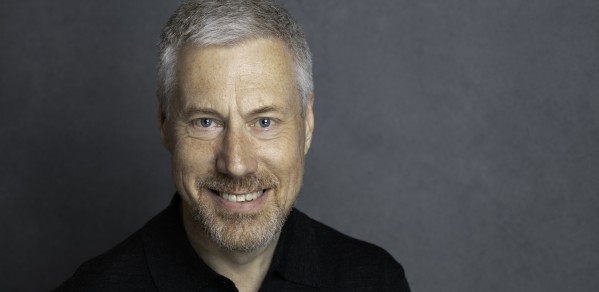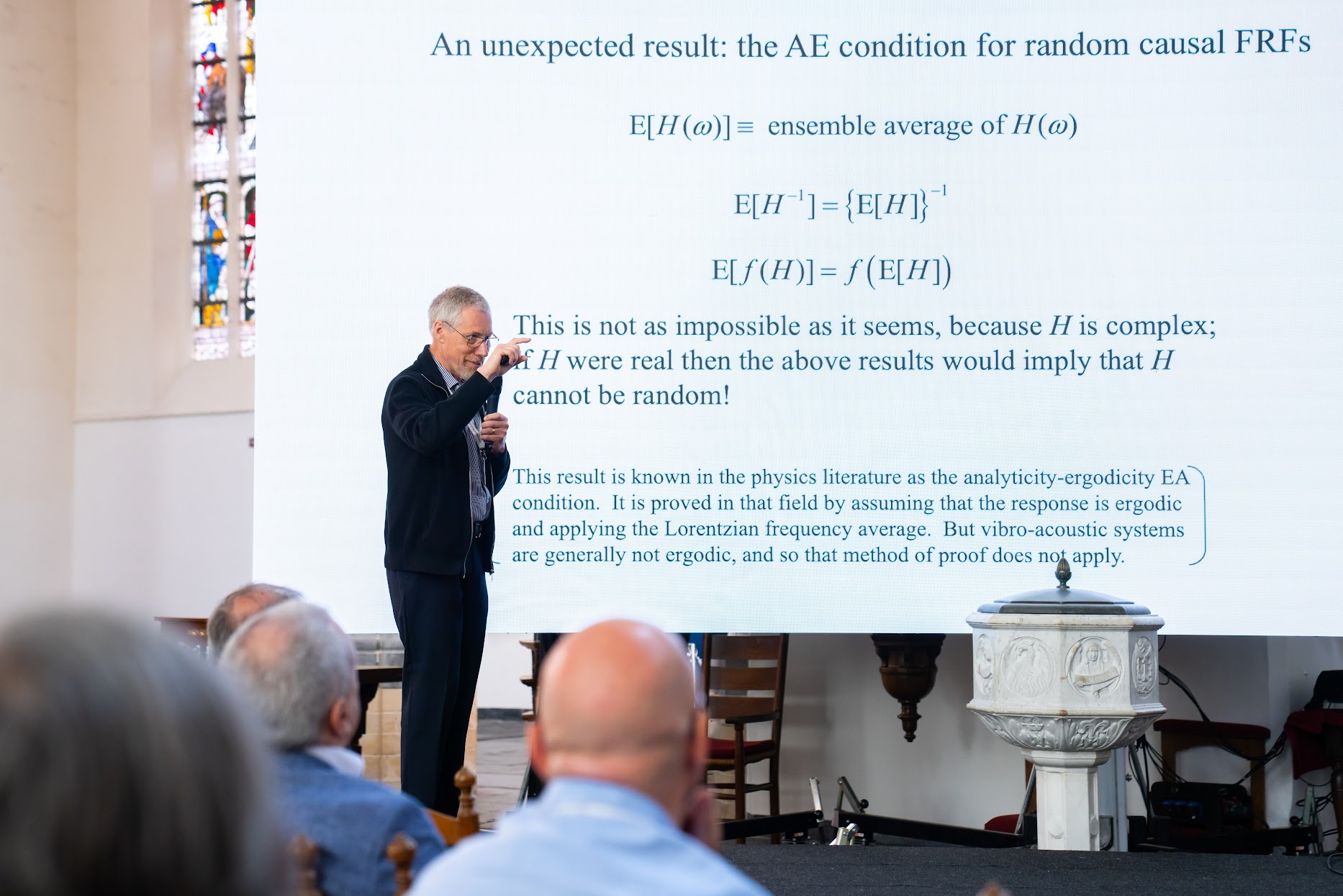
Emeritus Professor Robin Langley has received the European Association of Structural Dynamics award for outstanding and sustained contributions to structural dynamics.
The Department has a long tradition of work in the field of dynamics, and it has been a privilege to have been a member of the Dynamics and Vibration Research Group (founded by the late Professor David Newland) since my arrival here in 1998. Aside from my own work, the group addresses problems across the whole range of industrial sectors, and covers both fundamental and applied topics.
Emeritus Professor Robin Langley
Robin received the award at the EURODYN 2023 International Conference on Structural Dynamics at which he gave the main keynote speech entitled "Efficient methods of computing the steady state and transient response of random dynamic systems at high frequencies". The citation for the award refers to “his ingenious breakthroughs in vibro-acoustics, non-linear dynamics, uncertainty quantification, energy harvesting, electromagnetism and many more”.
Robin said “The Department has a long tradition of work in the field of dynamics, and it has been a privilege to have been a member of the Dynamics and Vibration Research Group (founded by the late Professor David Newland) since my arrival here in 1998. Aside from my own work, the group addresses problems across the whole range of industrial sectors, and covers both fundamental and applied topics. The scale of application ranges from micro-mechanical systems to heavy trucks to aircraft and beyond. It has been a constant inspiration to observe the work of my fellow group members, and the supportive and collaborative research environment afforded by the group has been of great benefit”.
Much of Robin’s research is centered on randomness and uncertainty in engineering dynamics. The randomness may occur in the loading acting on a system (examples include random wave loading on marine structures and turbulent boundary layer excitation of aerospace and automotive structures), or in the system itself (for example manufacturing imperfections and uncertain system properties). In all cases, the aim is to develop a fundamental understanding of the physics of the system behaviour and to develop mathematical and computational models that can be employed in engineering design.
The research includes methodologies for quantifying uncertainties, probabilistic inference, and the propagation of uncertainties through linear and nonlinear dynamic systems. Particular applications of the research include:
· The dynamics of marine systems
· Noise and vibration in aerospace and automotive structures
· High frequency electromagnetic compatibility.
Robin has extensive contacts with industry and he has been involved in the development of engineering software for noise and vibration analysis that is used by a wide range of industries.
He retired from the university in 2022 but is continuing with aspects of research as an Emeritus Professor.
He is a recipient of the Rayleigh Medal from the Institute of Acoustics and he is a Fellow of the Royal Academy of Engineering.


